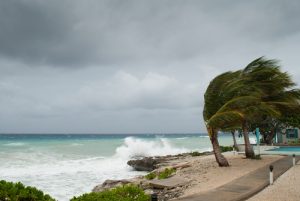Early signs indicate bond insurers can withstand the recent hurricanes Harvey and Irma with no change in credit ratings, while Maria’s impact may be moot.
Although insurers are still tallying the costs, S&P Global Ratings said Assured Guaranty, Build America Mutual and National Public Finance Guarantee aren’t at risk for a ratings downgrade as a result of Harvey and Irma.
In the parts of Florida and Texas designated by federal officials as “major disaster areas” from the two storms, insurers cover a total of $26.6 billion in bonds of public finance entities, S&P Global Ratings said.
 S&P said even with the additional exposure from Irma, the bonds are spread “among a variety of sectors ranging from general obligations and other tax-supported bonds to more-specific types, such as health care and transportation.”
S&P said even with the additional exposure from Irma, the bonds are spread “among a variety of sectors ranging from general obligations and other tax-supported bonds to more-specific types, such as health care and transportation.”
The insurers’ exposure includes: $9.4 billion of gross par exposure to declared FEMA counties from Irma and $7.9 billion from Harvey for Assured; $348 million and $3.6 billion for BAM, and $3.1 billion and $2.2 billion for National, the Bond Buyer reported.
Earlier this month, S&P said bond insurers’ exposure to Hurricane Harvey is “easily manageable.”
Muni bond insurers payments unrelated to ability to pay
Insurers may be asked to make scheduled debt-service payments in the immediate aftermath of the storms but only because of electronic transfer problems, not issuers’ inability to pay, a similar situation as with Katrina, S&P said.
“In the absence of electricity, phone service, and other basic business infrastructure, funds may not be transferred to investors in a timely manner. Issuers will likely reimburse bond insurers for these payments,” S&P said in a report Sept. 5.
As of last week, Assured Guaranty hadn’t received any hurricane-related claims, S&P said, according to the Bond Buyer.
“If we do receive claims, we expect those payments will be reimbursed, consistent with what we experienced after Hurricane Katrina,” said S&P’s Robert Tucker. “Issuer debt service liquidity needs sometimes arise in storm-related circumstances because, while the issuer has the resources to pay, funds may not be available to make debt service payments in a timely manner.”
As far as the insurers’ exposure to Maria, S&P said, the point may be moot.
“With regard to Hurricane Maria’s impact on Puerto Rico and the insured exposures of Assured Guaranty Ltd. and National Public Finance Guarantee Corp., we already rate these issues ‘CCC’ or lower,” S&P said. “Therefore, there is little question about issuer credit quality or rating migration. In one of our stress scenarios of bond insurers’ exposure to issuers in Puerto Rico, we assumed that all issuers defaulted on 100% of their debt service through 2020 and that the insurers were required to make claim payments equal to 100% of debt service.”
Absent other factors, S&P said, each company’s capital position could absorb losses in each scenario and there would be no change in the adequacy score or financial risk profile of either Assured or National.
“We find that each company has sufficient liquid resources to meet claim payments in this scenario – the incremental risk presented by Irma and Harvey does not change our assessment.”
Some analysts noted that with insurers already paying interest on defaulted Puerto Rico debt, an influx of federal aid to help rebuild the commonwealth’s infrastructure may ultimately improve the finances of major issuers.
It’s also worth noting that, according to Moody’s Investors Service, natural disasters haven’t caused a single default by a municipal borrower that was rated by Moody’s.

